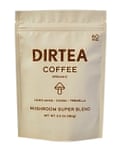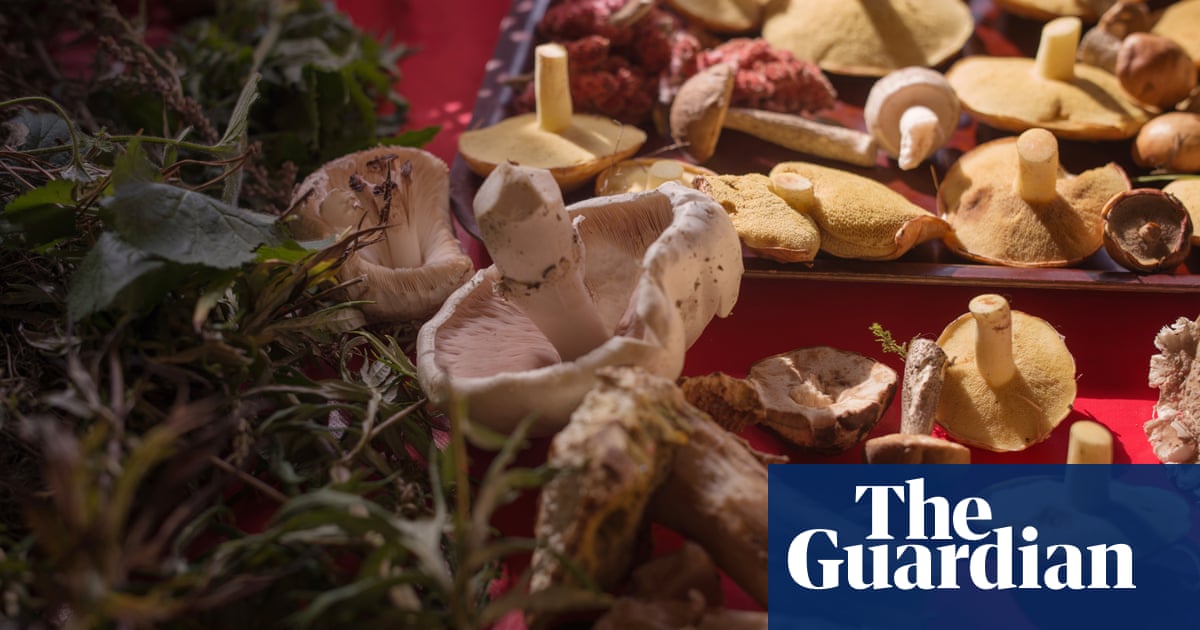Sipping mushroom coffee sounds like a weird camping trip anecdote but more Britons are embracing this alternative morning pick-me-up as “mushroom mania” sweeps the high street.
With the food industry eager to cash in on demand for “functional foods” that promise extra health benefits, medicinal mushrooms – not the button kind you put in a stew – are turning up in hot drinks, supplements and even beer.
While Britons seem receptive – Holland & Barrett says that this month searches on its website for “functional mushrooms” are up 50% on a year ago – a recent investigation by Which? put the products in the category of “health products you don’t need”.
“There isn’t enough evidence yet to suggest they work and the vast majority don’t have authorised health claims in the UK,” the consumer champion concluded of products made from mushrooms including reishi, lion’s mane and chaga.
Close reading of the packaging showed the benefits were often derived from other ingredients with authorised health claims, such as omega-3, and vitamins B12 and D. While mushrooms may contain beneficial nutrients such as antioxidants and beta-glucan, its researchers said, they were essentially “incidental” in many of the supplements.
Mushroom-based hot drinks on one level appeal to people who want to reduce their caffeine intake but also the 35% of consumers, and half of 16- to 34-year-olds, who told Mintel they were interested in food and drink with “healthy ingredients based on ‘ancient wisdom’ such as Ayurveda and Chinese medicine”, said Kiti Soininen, its category director of UK food and drink research.

Demand for these products is growing thanks to an advertising blitz on social media, word of mouth and the fact they are stocked more widely. While consumers often buy direct from brands such as Dirtea, Spacegoods and Reformed, they are an increasingly common sight in pharmacies and health stores, including Boots and Holland & Barrett.
“Functional mushrooms have been a growing category at H&B, as our customers seek out the latest trending health and wellness products,” said a Holland & Barrett spokesperson. “There is increasing awareness of the benefits of mushrooms for both internal and external use, with emerging evidence that the natural adaptogens they contain may support with overall wellbeing.”
It said it had just added 13 new products to its range. “All of the products we sell are carefully selected by our team of experts and comply with food labelling legislation and permitted claims.”
Neil Marrakchi, co-founder of Reformed, says people often get confused and think of magic mushrooms, asking questions such as “will I have weird dreams?” The answer is “no”. The young entrepreneur set out to “create the healthiest coffee in the world” resulting in a heavily fortified blend that includes mushrooms (lion’s mane, chaga, maitake and shiitake), collagen and MCT oil, and costs £40 a packet.
Its more established rival Spacegoods is growing fast and expects to turn over £10m this year as customers gravitate to its chocolate-flavoured Rainbow Dust which comes in technicolour packaging and promises “zero jitters/crashing”.
Matthew Kelly, the Spacegoods founder, says the coffee replacement, loaded with 15 supplements and which recently went into Boots, avoids the need to “stack” vitamins. At present its customer base is split between men and women but long-term he expects the “Lululemon audience” of 25- to 45-year-old women will be its sweet spot.
Spacegoods has not done its own clinical studies but would like to in the future, Kelly says, adding there is a lot of evidence around the specific ingredients it uses. “If it was bogus, we wouldn’t have 15,000 subscribers that buy the products every month and tell us how great it is.”
While many of the brands share the testimonials of “happy” customers and promote positive reviews on their websites, the science community is scathing of the evidence base for the latest in a long line of wellness trends.
Some experts point out that many people feel better when they switch to a mushroom blend not because of a fungi feelgood effect but because they generally contain less caffeine, with a large section of the population very sensitive to the stimulant.
Prof Nicholas Money, a mycologist at Miami University in Ohio, who previously told the Guardian some of the claims being made were “without scientific foundation and amount to little more than snake oil”, told a recent episode of BBC Radio 4’s Sliced Bread programme devoted to the topic that it was “complete BS”.
“Mushrooms probably do contain some really, really useful compounds but I want to see the science,” said Money, who published a review on medicinal mushrooms in 2016 and whose book Molds, Mushrooms, and Medicines came out this year.
“Show me the evidence – that’s my bottom line with all of these products. On the plus side, probably, these products are not harming any consumers … The placebo effect is so powerful if somebody feels better after drinking mushroom coffee, go for it.”






